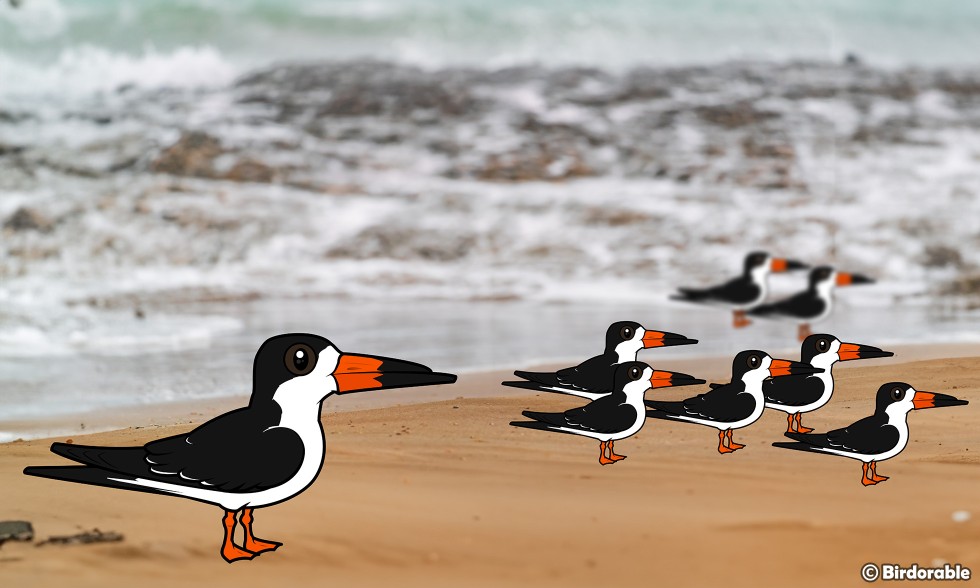
- Black Skimmers are fascinating birds, known for their unique feeding method. They glide over water, using their elongated lower mandibles to skim the surface and catch fish. This specialized technique is a marvel of nature's design.
- Interestingly, baby Black Skimmers are born with upper and lower mandibles of the same length. It's only during the fledging period that the lower mandible grows longer, preparing them for their distinctive way of foraging.
- Among the world's bird species, there are only three types of skimmers, and the Black Skimmer is the only one found in the Americas. This makes it a special sight for bird enthusiasts across North and South America.
- Parental care in Black Skimmers is a joint effort. Both males and females share the duty of incubating the eggs. Impressively, male Black Skimmers are equipped with brood patches, which is quite rare among birds. After the chicks hatch, both parents continue to brood and feed the nestlings, showcasing a remarkable example of cooperation.
- The Black Skimmer has earned a variety of folk names over the years, including Seadog, Scissor-bill, and Cutwater. These names highlight the bird's unique appearance and feeding habits.
- While Black Skimmers are active throughout the day, they are mainly crepuscular, meaning they are most active during the twilight hours of dawn and dusk. This behavior allows them to efficiently feed when fish come closer to the water's surface.
- One of the most intriguing features of Black Skimmers is their large, vertically-oriented pupils, similar to those of cats. This adaptation is unique among birds and helps them see in low light, aiding their crepuscular feeding habits.
- Despite their strong association with water, Black Skimmers do not swim. They have adapted to feed and live near water without the need for swimming capabilities.
- The BP Oil Spill Disaster in 2010 posed a significant threat to the Black Skimmer population along the Gulf Coast. Their feeding method, which involves skimming the water's surface, made them especially vulnerable to oil contamination. The disaster resulted in the death of 192 skimmers, as noted by the FWS, highlighting the environmental risks these birds face.
- The Black Skimmer has been embraced by bird lovers around the world and was added to the Birdorable collection on December 2nd, 2010. This addition celebrates the bird's unique charm and the affection it inspires among birdwatching communities.




